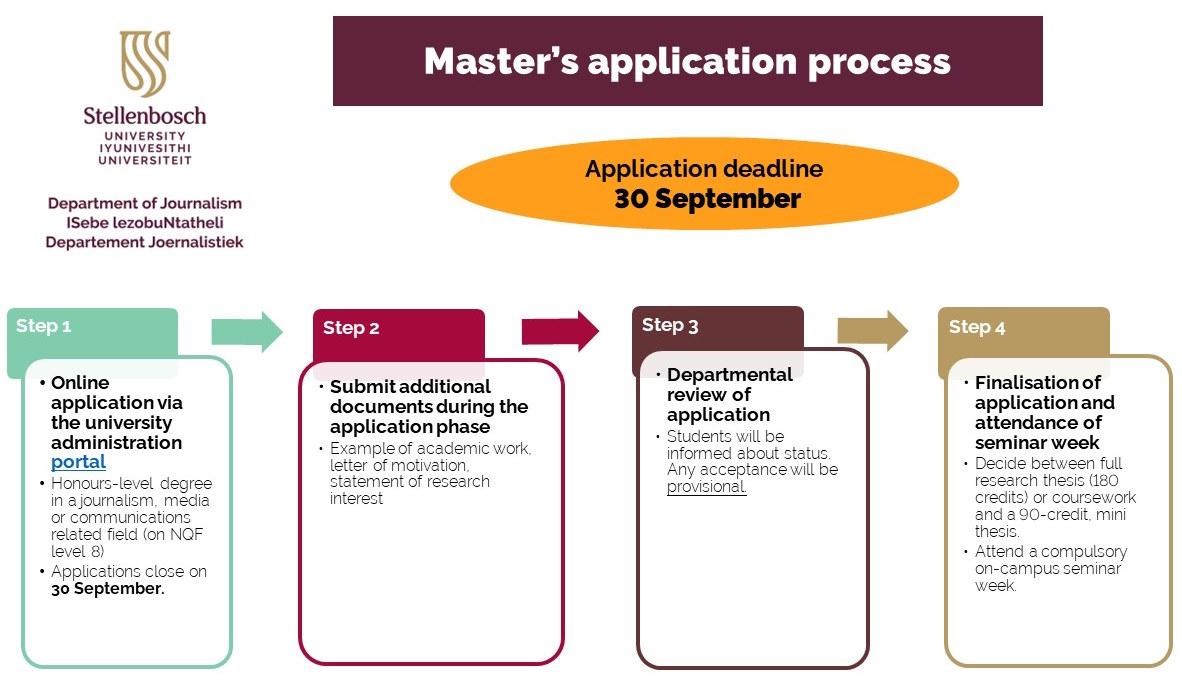
MA Journalism
Master’s level of study specialising in Journalism, Media or Communications Studies
Our Master’s degree is a 180-credit programme (on NQF level 9) focused on Journalism, Media and Communication Studies. The programme is presented in hybrid mode, with most of the learning taking place online and during one-on-one consultations with supervisors. All students must attend an in-person, on campus seminar week in January during their first year of study.
Students have the option of completing a full research thesis (180 credits) OR coursework (90 credits) and a mini thesis (90 credits).
Programme convener 2024
Programme Coordinator
Programme details
Admission requirements and application process
The admission requirements and application process for our MA programme is summarised below.
Please note that applications close on 30 September for the following year.

Any general enquiries can be directed to journalism@sun.ac.za
Programme structure and content
Students have two options for structuring their degree to obtain the required 180 credits.
Option 878: Full research thesis (180 credits)
Students must attend the seminar week in January for workshops on research methodology and theory. This time should also be used to meet with a supervisor and finalise the research idea and proposal.
Thesis chapters must be submitted on a regular basis to the supervisor for feedback. Students must regularly check the website of the Higher Degrees and Research Committee in the Faculty of Arts and Social Science to ensure they are aware of important dates and document requirements. The final thesis must be between 35 000 to 45 000 words.
Option 878: Theory and Method Review Module (90 credits) and mini thesis (90 credits)
Students must attend the seminar week in January for workshops on research methodology and theory. If a student chooses to complete the Theory and Method Review module, they must also attend a follow-up seminar week in June.
The Theory and Method Review module (90 credits) consists of at least five assignments aimed at preparing students for their thesis. This module is completed in the first year of study. More information about assignments and deadlines will be shared with successful candidates.
In the second year of study, students complete a mini thesis (90 credits) that must adhere to the same requirements as a full research thesis. Thesis chapters must be submitted on a regular basis to the supervisor for feedback. Students must regularly check the website of the Higher Degrees and Research Committee in the Faculty of Arts and Social Science to ensure they are aware of important dates and document requirements. The final thesis must be between 8 000 to 22 000 words.





